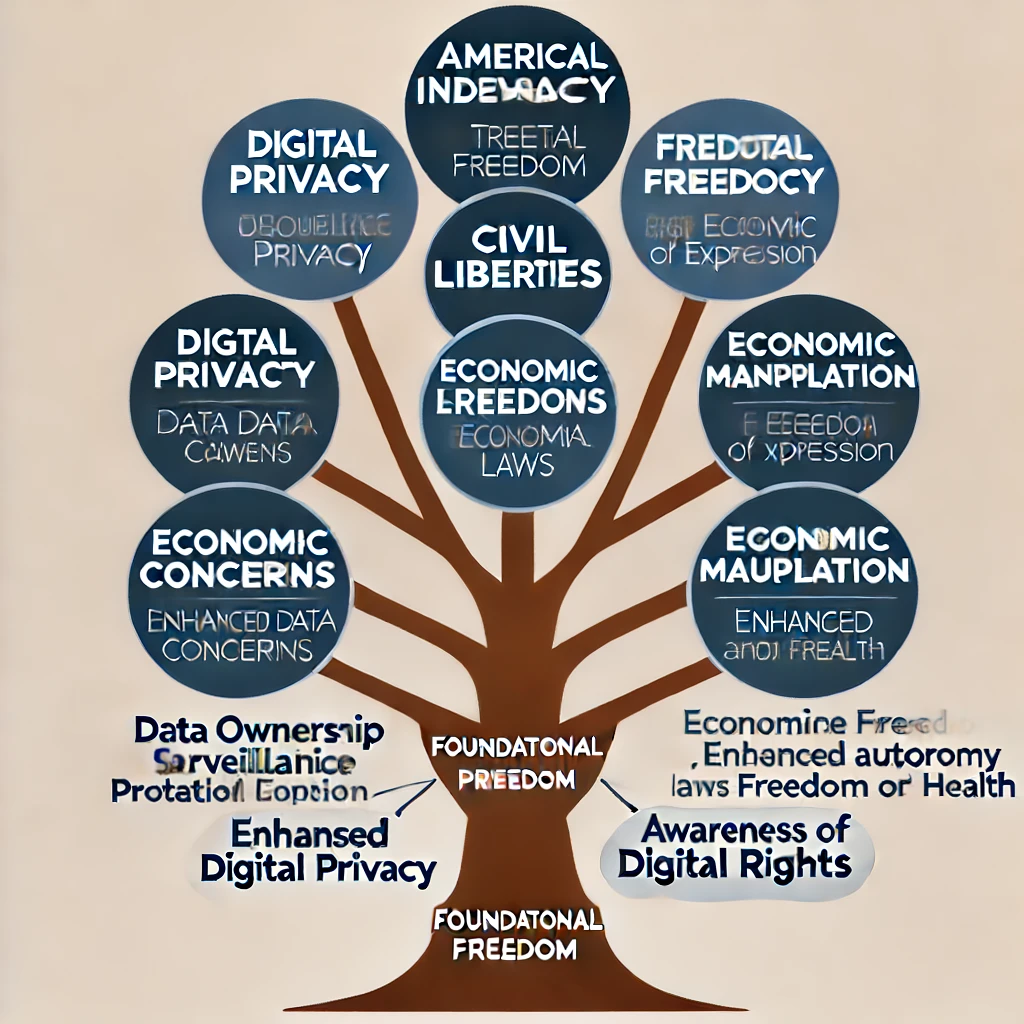America’s Independence Tree: 5 Flourishing Concepts of Freedom

Freedom, a principle deeply embedded in the American psyche, has been the driving force behind the nation’s revolutionary spirit, democratic evolution, and societal progress. However, as we traverse the complexities of the 21st century, the contours of freedom are continually reshaped by technological advancements, security imperatives, economic disparities, and global health crises. This article explores five pivotal ways in which the concept of freedom is evolving in modern America, prompting profound reflections on its future trajectory.
1. Digital Privacy: The New Battleground
In the digital era, privacy has emerged as a critical dimension of freedom. Every online interaction, from social media engagements to online shopping, generates data that is meticulously collected, analyzed, and often exploited. Tech giants and government agencies possess unprecedented surveillance capabilities, sparking debates over data ownership and individual privacy.
The Edward Snowden revelations underscored the extent of government surveillance, igniting a global discourse on privacy rights. Despite efforts to enhance data protection, such as the European Union’s General Data Protection Regulation (GDPR), the United States still grapples with balancing innovation and privacy.
Thought to ponder: As citizens, are we genuinely exercising free will in our online activities, or are our choices being subtly manipulated by algorithms and surveillance mechanisms? The quest for privacy in the digital age challenges us to redefine the boundaries of personal freedom in an increasingly connected world.
2. Civil Liberties and National Security Post-9/11
The terrorist attacks on September 11, 2001, fundamentally altered the landscape of American civil liberties. In response, the Patriot Act and other legislations expanded governmental powers to monitor and detain individuals suspected of terrorism. While these measures aimed to bolster national security, they also triggered concerns about overreach and the erosion of fundamental freedoms.
The Guantanamo Bay detention camp and enhanced interrogation techniques epitomize the ethical and legal quandaries faced in the name of security. Critics argue that such practices undermine the very freedoms they purport to protect.
Thought to ponder: How do we navigate the delicate balance between safeguarding national security and upholding civil liberties? This enduring tension invites a reexamination of freedom in an era where security threats are both tangible and digital.
3. Economic Freedom Amidst Rising Inequality
Economic freedom, a pillar of the American dream, asserts that individuals should have the liberty to pursue financial success through hard work and innovation. Yet, rising income inequality and economic barriers have cast a shadow over this ideal. The gap between the wealthy and the rest has widened, raising fundamental questions about the accessibility of opportunities.
The debate over raising the minimum wage, access to affordable healthcare, and the cost of higher education reflects broader concerns about economic justice. The COVID-19 pandemic exacerbated these issues, disproportionately affecting lower-income communities and highlighting systemic inequalities.
Thought to ponder: Can we truly claim economic freedom when significant segments of the population face insurmountable financial obstacles? The evolving concept of economic freedom necessitates policies that address inequality and ensure equitable opportunities for all.
4. Freedom of Expression in the Social Media Age
Social media has revolutionized the landscape of freedom of expression, providing platforms for diverse voices and democratizing information dissemination. However, it has also introduced new challenges, such as misinformation, hate speech, and the phenomenon of cancel culture.
The Capitol riot on January 6, 2021, illustrated the potent impact of online misinformation and the fragility of democratic norms. Social media companies face increasing scrutiny over their role in moderating content and protecting users’ rights.
Thought to ponder: Are we experiencing greater freedom of expression, or are we navigating a minefield of digital echo chambers and potential repercussions for our views? The modern era compels us to reconsider the responsibilities that accompany freedom of expression.
5. Personal Autonomy and Public Health in a Pandemic
The COVID-19 pandemic has tested the boundaries of personal autonomy and collective responsibility. Public health measures, including mask mandates, lockdowns, and vaccination campaigns, have sparked intense debates about individual freedoms versus societal obligations.
The controversy over vaccine mandates epitomizes this conflict. Proponents argue that such measures are essential for public health, while opponents view them as infringements on personal liberty.
Thought to ponder: How do we balance individual autonomy with the imperative to protect public health? The pandemic has redefined our understanding of freedom, emphasizing the interconnectedness of personal choices and communal well-being.
Conclusion
As we celebrate another Independence Day, it is imperative to reflect on how the concept of freedom is evolving. The challenges posed by digital privacy, national security, economic inequality, social media dynamics, and public health crises compel us to think critically about the future of freedom in America. These issues require a nuanced understanding and a commitment to preserving the core values that define the nation.
Call to action: Let us engage in informed dialogues, advocate for balanced policies, and strive to ensure that freedom in America remains robust and inclusive. The evolving nature of freedom demands our vigilance and thoughtful consideration, ensuring that it continues to thrive in all its forms.
Read more about America’s independence here

